Lessons from Poland: How to Develop Medical Tourism in Central Europe
October 23, 2019 - Lessons from Poland, the latest opportunity for Croatia's medical tourism chiefs to learn best practices from another country, but is anyone listening?
Sometimes the clearest lessons come from the most unlikely of places.
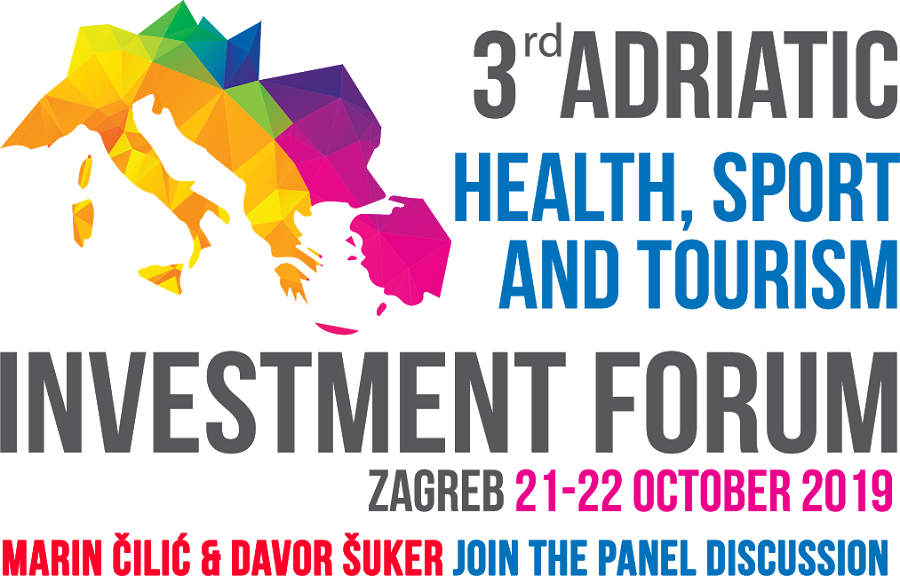
The 3rd Adriatic Health, Sport & Tourism Investment Forum concluded in Zagreb yesterday. It was a very stimulating event for me personally n terms of international contacts made, as well as being extremely well supported by some impressive international expert speakers, two Croatian government ministers, high-profile characters from the world of Croatian sport such as Davor Suker and Marin Cilic, and others. But the presentation which caught my eye and was the most important for those with an interest in developing medical tourism in Croatia came from a less celebrated source.
The medical tourism industry of Poland.
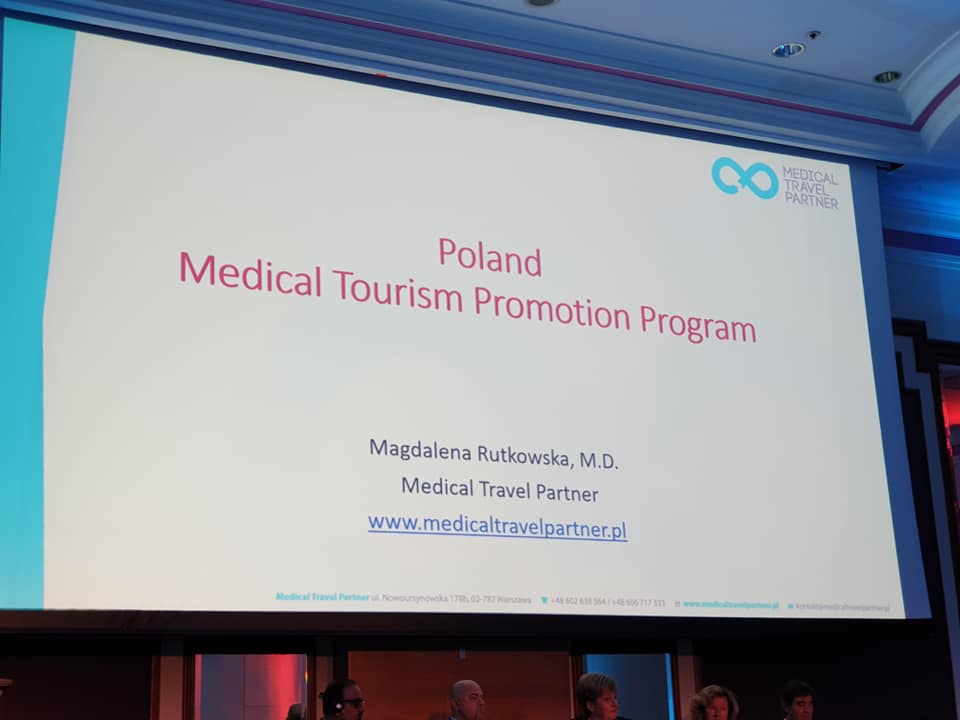
I am still learning about the global medical tourism industry and was not aware that Poland even had a significant medical tourism industry, let alone one which was allocated time to present at the conference, but from the moment I saw the first slide of Dr. Magdalena Rutkowska's presentation I was hooked.
Poland Medical Tourism Programme. That had a nice, unified and national feel for a medical tourism brand. A little like the Malaysia Healthcare Travel Council. And very unlike the way Croatia presents its medical tourism industry internationally.
International trade fairs may come across the Kvarner Health Cluster, Losinj, the Island of Vitality, Zagreb, Bagatin Clinic (the most active Croatian clinic nationally and internationally), but Croatia Medical Tourism Programme? A concept almost unheard of. Such a simple and obvious step and one that Croatia has yet to master.
But Poland had gone further than branding its industry on a national level, much further. Let's agree that Poland is not the number one medical tourism destination in the world, and its potential is less than Croatia's but in terms of what it is doing to realise its potential, it has a LOT of lessons for its Adriatic neighbour.
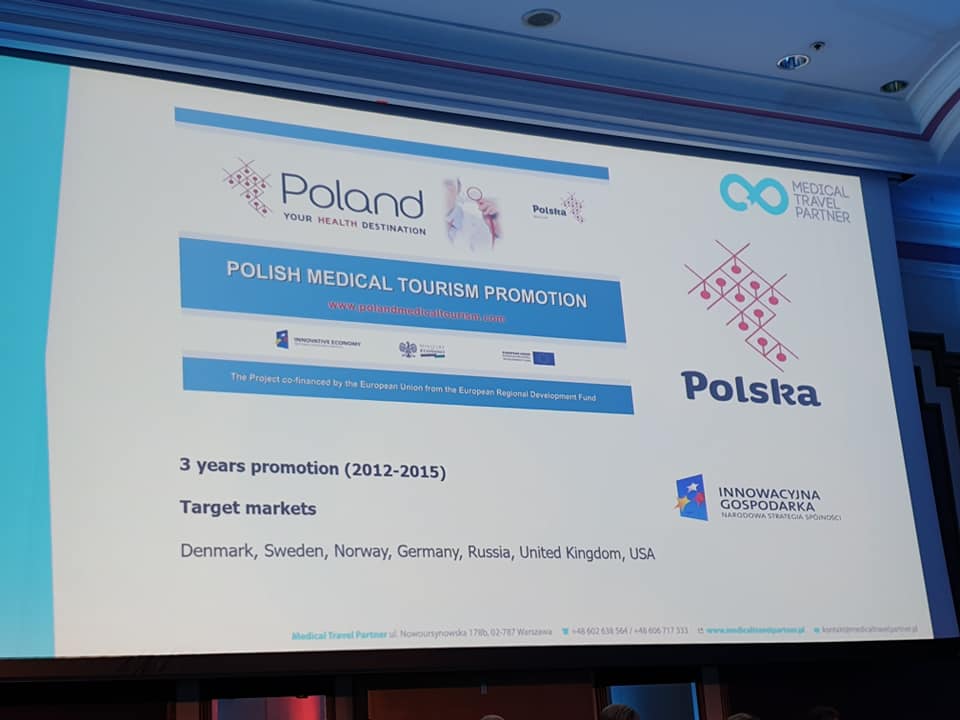
I almost feel stupid celebrating Poland's success, because all they have done is implement a common sense approach with determination, an approach which has not only brought tangible success, but at zero cost to the Polish taxpayer, and resulting in the approach being expanded and extended.
A concept which could - and SHOULD - so easily be taking place in Croatia, the country which has medical tourism at the heart of its 7-year tourism strategy of 2013, but which has yet to deliver anything concrete. Simply following Poland's example would be an excellent way to start, and I found Magdalena after her presentation to learn more.
The 3-year medical promotional project worth 5 million euro of EU money between 2012 and 2015 had its origins back in 2010 when some of Poland's private clinics started to lobby the government to do more to promote the medical tourism industry. After concerted pressure, the Polish government decided to include medical tourism in 15 sector tenders. Magdalena Rutkowska and her team stepped forward and Medical Travel Partner Poland became the implementing agency of the project. Initial target countries were Denmark,Germany, Norway, Sweden, UK, USA and Russia.
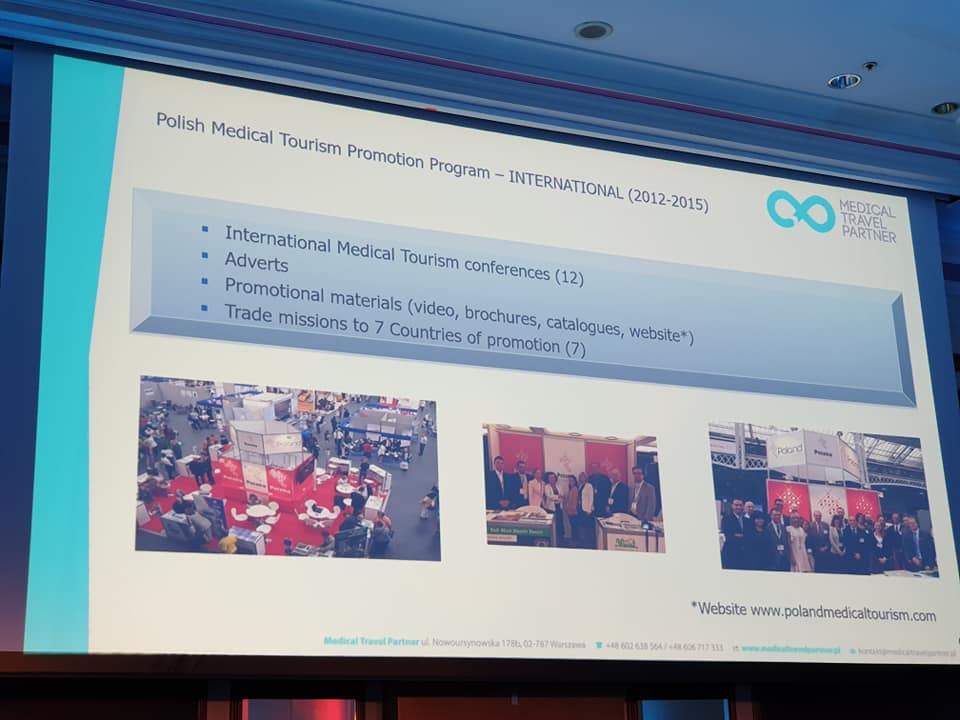
Brand Poland went on tour.
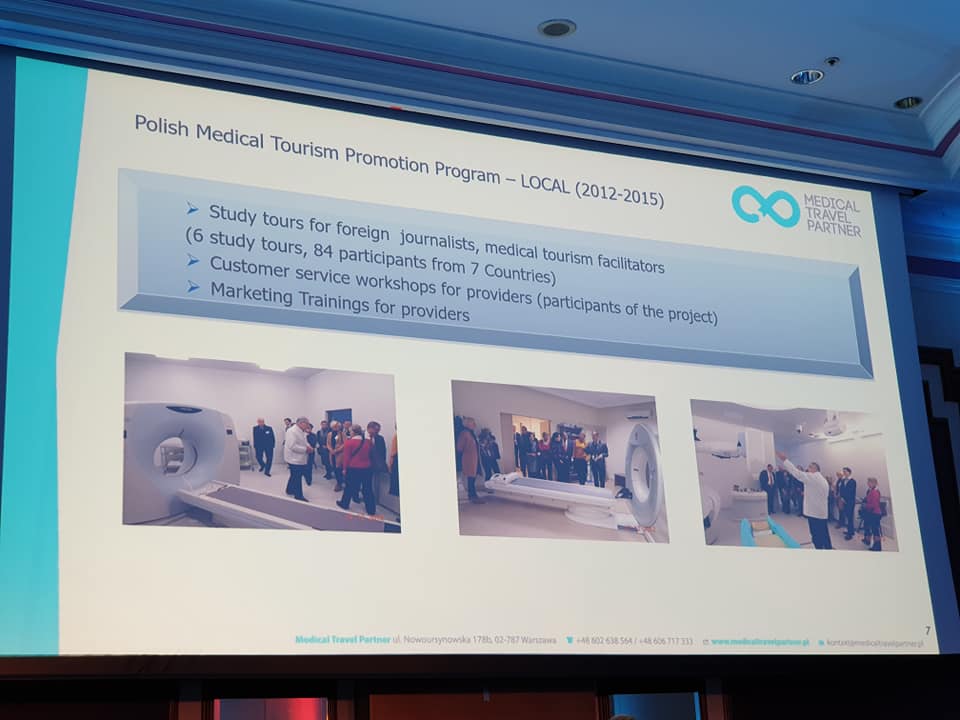
And Brand Poland played host, as well as capacity building and strengthening the brand with the participating stakeholders.
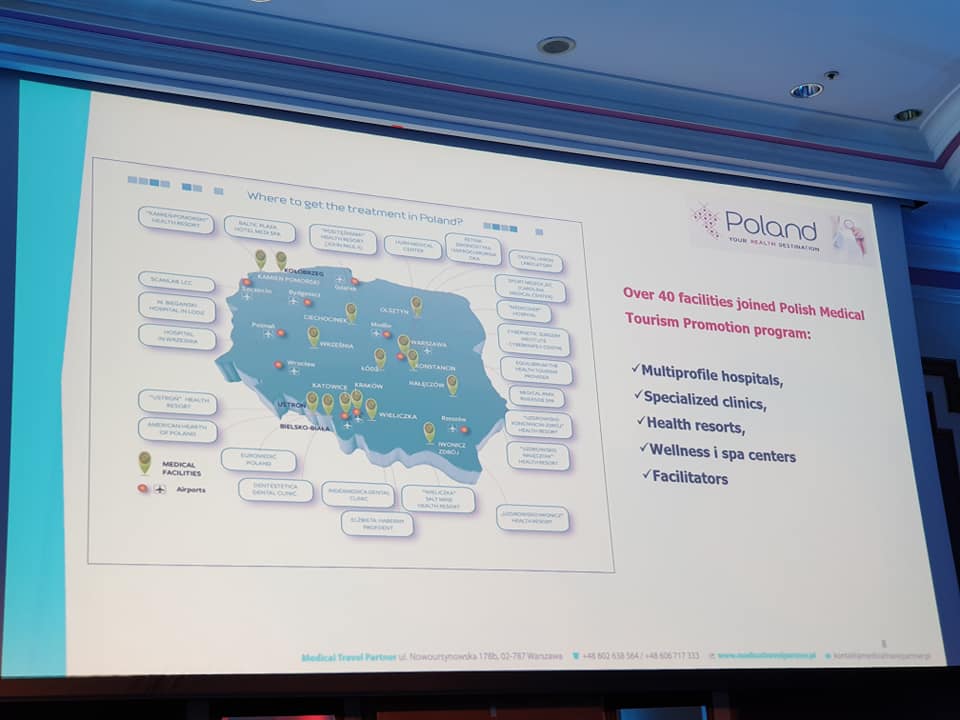
Some 40 clinics took part in the first phase of the project, investing their money in the joint promotion of Poland's brand as a medical tourism destination. Some 75% of their investment costs were reimbursed from the EU.
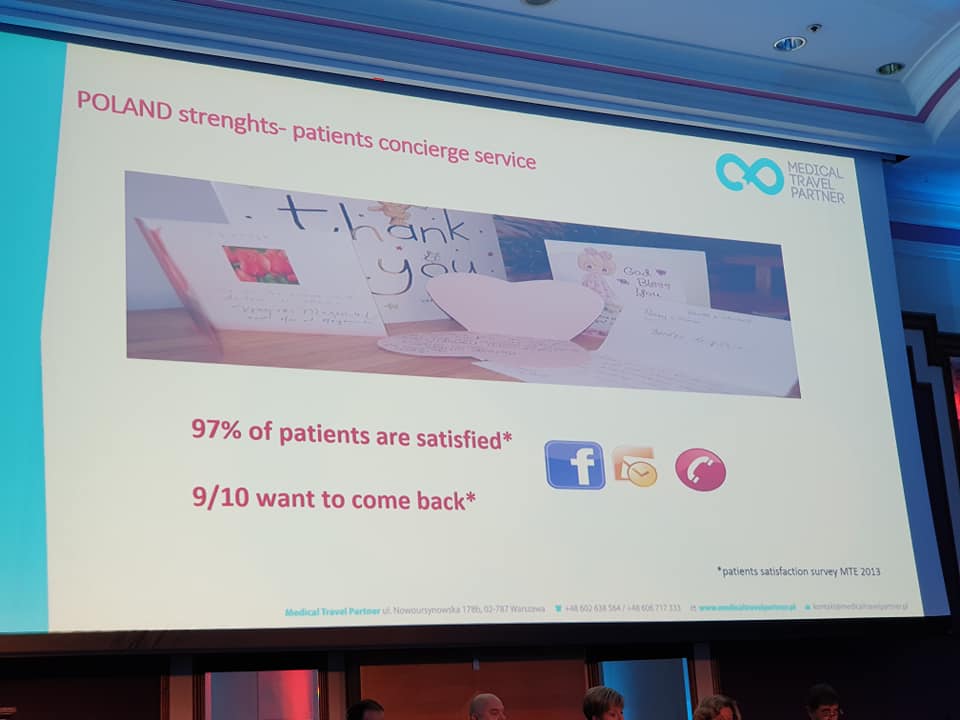
The project included feedback from the medical tourists who came to Poland during that period.
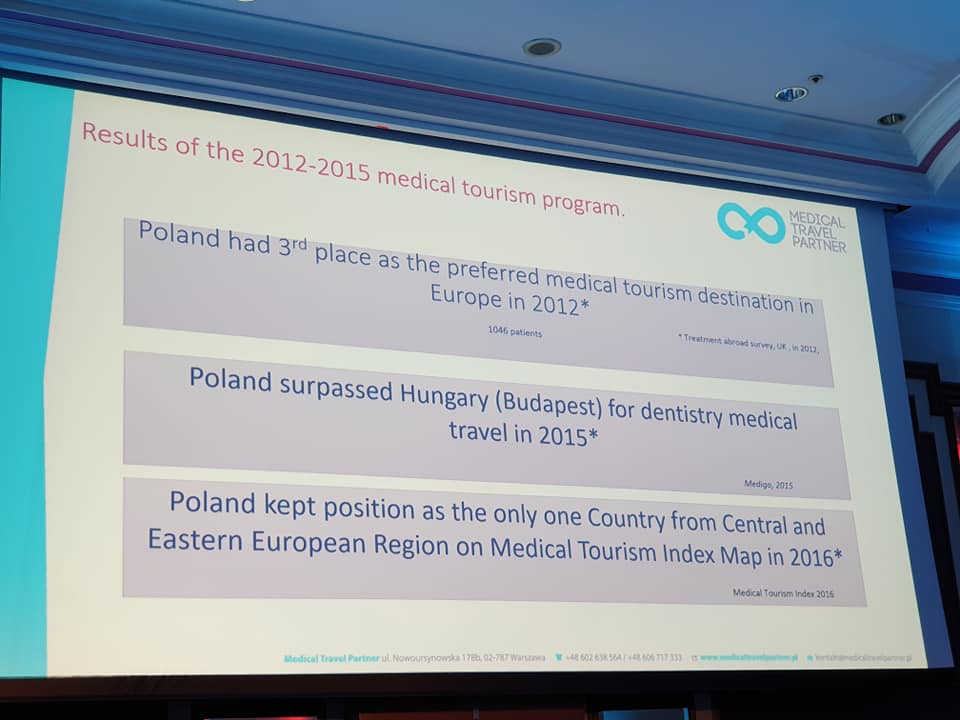
And there were some initial results for which Poland can be proud.
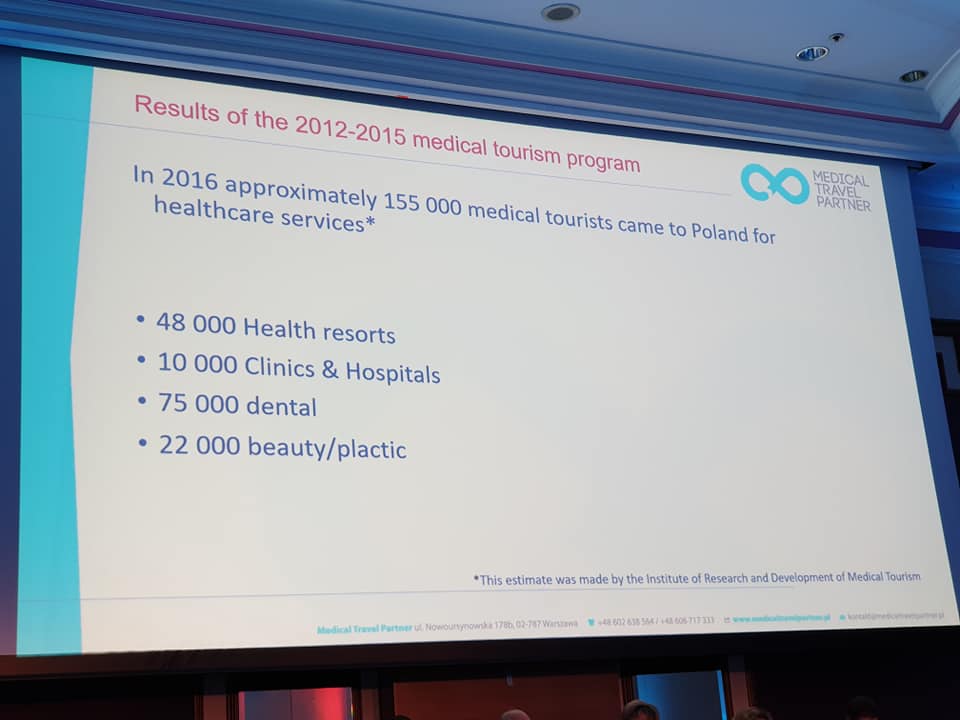
The numbers may be small for now, but the foundations being built are very solid. You can learn more about the results of the initial phase here.
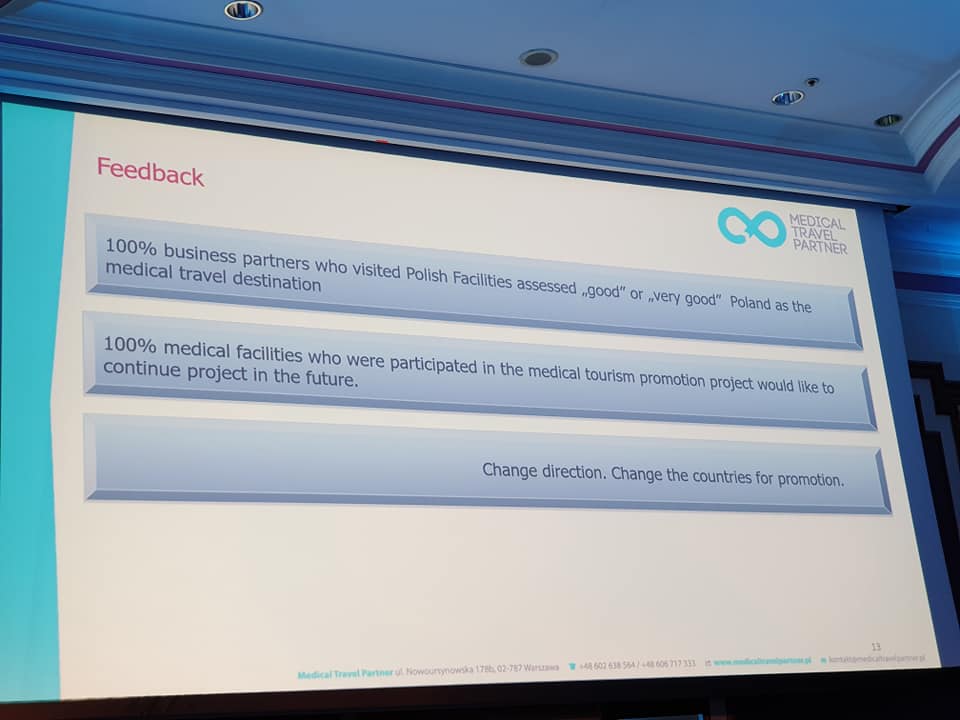
After the first 3-year phase, the project continued. Additional target countries were added, as the EU wanted Poland to look at attracting tourists from non-EU countries.
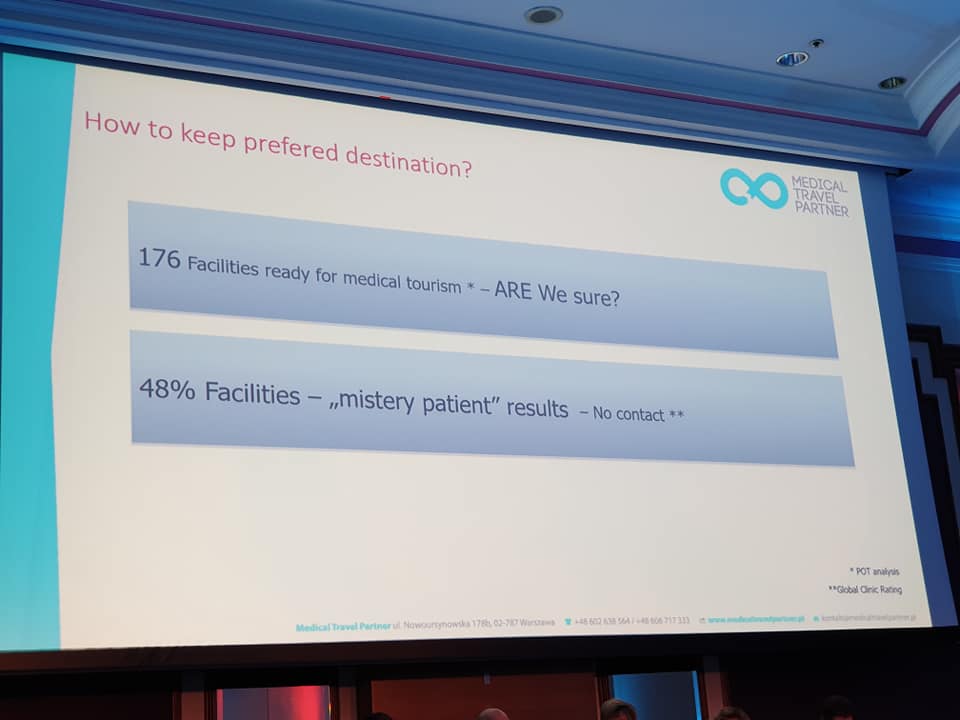
Interest from clinics was strong, with some 176 interested in participating, a significant increase from the initial 40.
While progress has been made, there is still plenty to do, of course. As part of its ongoing quality control, mystery shoppers tasted the response rate to enquiries from the participating clinics - there was no reply from 48 of them. So clearly some work to be done - train these clinics to be appropriately responsive or exclude them from the project.
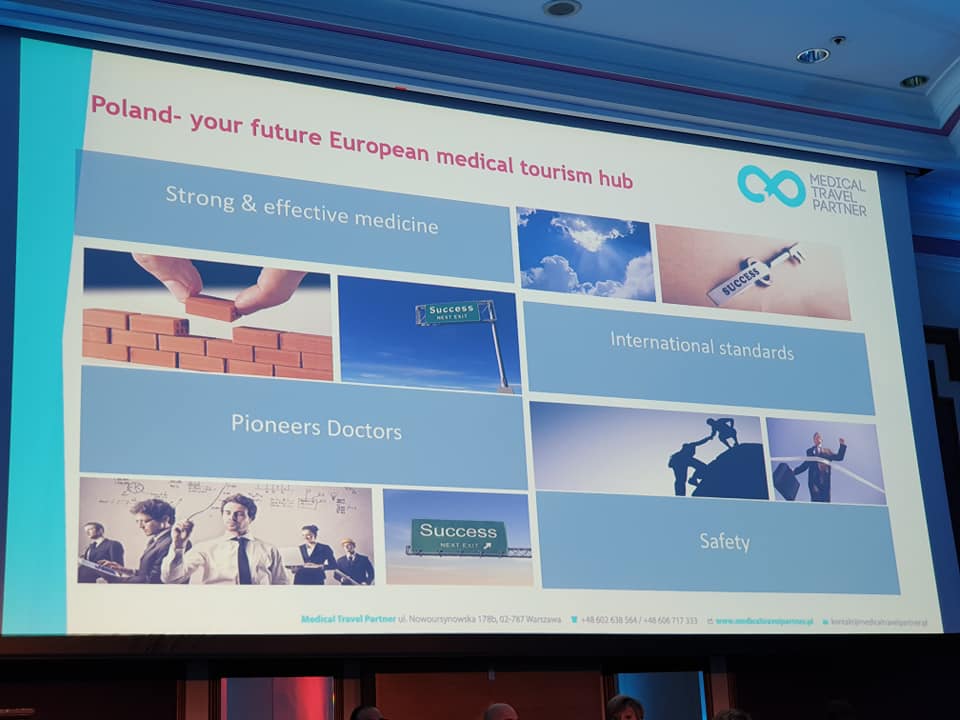
Small steps, but concrete ones, and an emerging national brand, with a clear vision of the future direction.
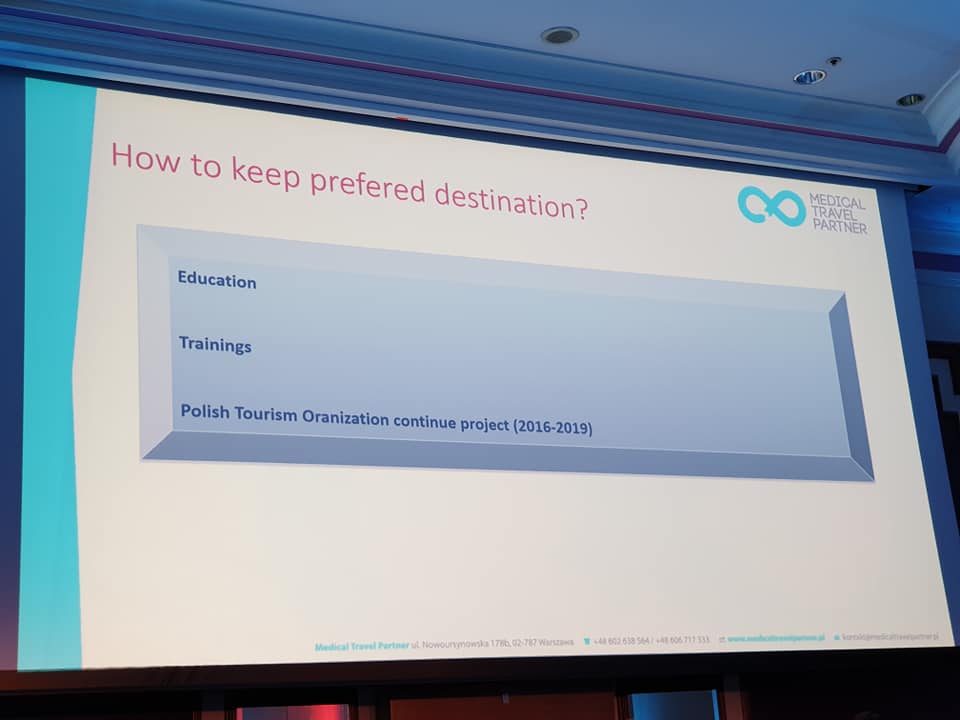
And after the initial success, more official interest and partnership, with the second phase under the umbrella of the Polish Tourism Organization.
The timeframe from project concept and submission to approval and commencing - just six months, although it should be noted that the money took longer to arrive and so many projects were initially financed by Poland and then reimbursed by the EU.
Could it happen in Croatia?
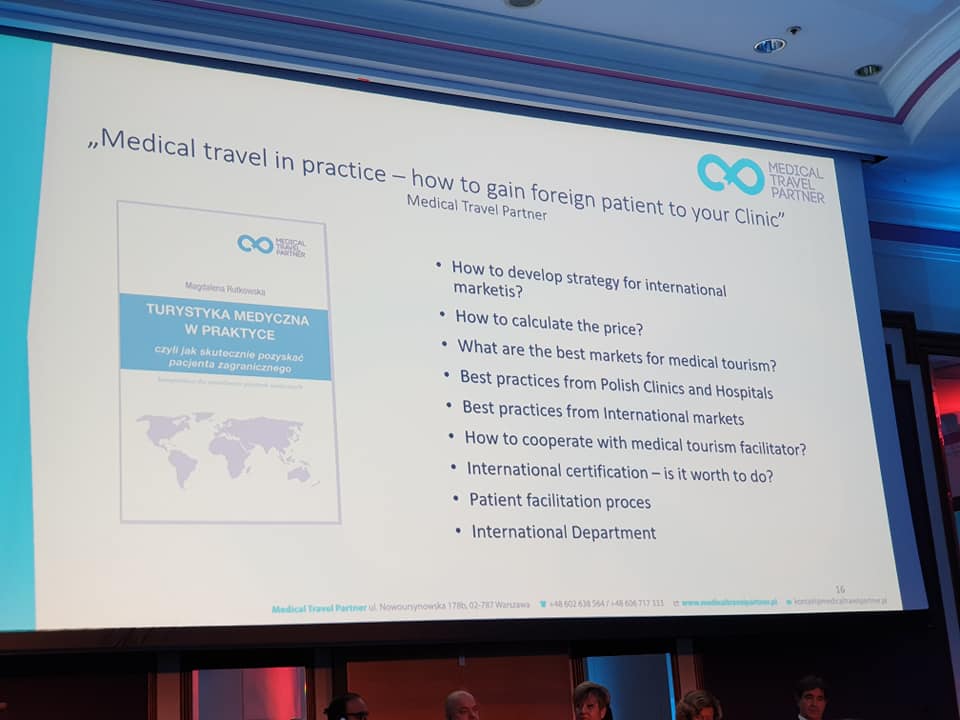
Poland's journey is a process of learning and trial and error. There were some expectations which failed to materialise, whereas other unexpected market opportunities arose. They had high expectations of the rich Polish diaspora in places such as the United States, but this has so far failed to provide a lucrative source of clients. On the other hand, simply by being present at international trade fairs and networking, new markets in former Soviet replublics such as Tajikistan and Uzbekistan have materialised.
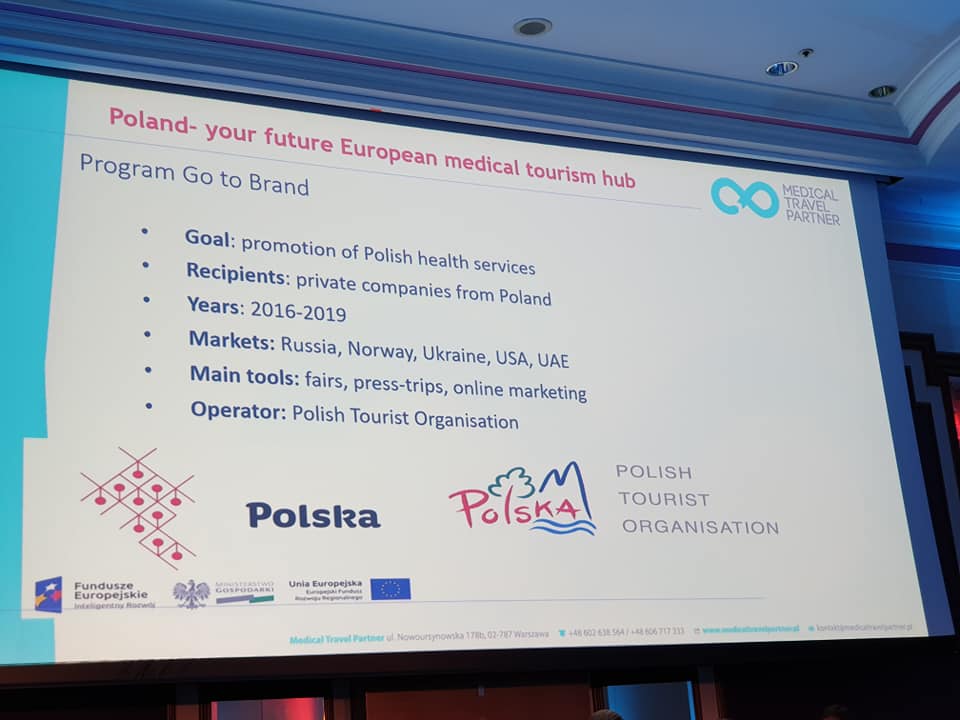
For many participants, I am sure that this Polish presentation will not rank as one of the top moments of what was an excellent conference, but for me it was the most useful lesson of all for those with a genuine interest in moving Croatian medical tourism forward to the level it should be at to realise its considerable potential.
And then, a rare moment later in the conference - questions to the panelists allowed from the floor, something that happens all too rarely. I decided to raise my hand, firstly to congratulate Magdalena on an excellent presentation, and then to address my question to fellow panelist, Robert Pende, Croatian Assistant Minister of Tourism.
"Assistant Minister, I have lived in your country for 17 years now and have heard one word more than any other when talking about developing Croatia's future - potential. Croatian tourism has so much potential, the medical tourism industry has so much potential etc. Medical tourism has been at the heart of your 2013 - 2020 medical tourism strategy for almost 7 years now. Putting the word 'potential' aside for a moment, and having listened to the excellent and very concrete example from Poland, can you give us any similar concrete examples of projects undertaken in that time, and what were the results?"
I will leave you to guess the response.

To learn more about the forum organisers, including their other initiatives to develop medical tourism in the Adriatic, visit the Medical Group Ltd website.
Learn more about Polish medical tourism in the video below, and to follow the latest from the Croatian medical tourism journey, follow the dedicated TCN section.

